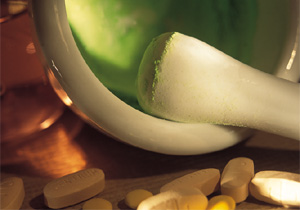Materia Medica - Important
Disclaimer
The information that is available at or
through this site is not intended directly
or by implication to either diagnose or
treat any medical, emotional, or
psychological condition or disorder. It
is always recommended that consultation
with local health care providers be
obtained for specific health or medical
concerns.
Pharmaceutical Name

Radix Morindae officinalis
Botanical Name

Morinda officinalis How
Common Name

Morinda root
Source of Earliest Record

Shennong Bencao Jing
Part Used & Method for Pharmaceutical Preparations

The roots are dug in spring or winter. After the fibrous roots have been removed and the roots are dried in the sun, the dried roots are steamed or soaked. The core of the root is discarded, and the remaining root is cut into slices.
Properties & Taste

Pungent, sweet and slightly warm
Meridian

Kidney
Functions

1. To tonify the kidneys and strengthen yang; 2. To dispel wind and transform dampness
Indications & Combinations

1. Deficient kidney yang manifested as soreness and weakness in the lower back and knees, impotence, premature ejaculation, infertility, frigidity, irregular menstruation, and cold sensation and pain in the lower abdomen. a) Morinda root (Bajitian) is used with Ginseng (Renshen), Cistanche (Roucongrong) and Dadder seed (Tusizi) for impotence, premature ejaculation and infertility; b) Morinda root (Bajitian) is used with Teasel root (Xuduan) and Eucommia bark (Duzhong) for soreness and weakness in lower back and knees; c) Morinda root (Bajitian) is used with Cinnamon bark (Rougui), Galangal rhizome (Gaoliangjiang) and Evodia fruit (Wuzhuyu) for irregular menstruation.
2. Morinda root (Bajitian) is used with Teasel root (Xuduan), Mulberry mistletoe (Sangjisheng) and Hypoglauca yam (Bixie) for cold sensation and pain in the lumbar region and knees or motor impairment.
Dosage

10-15 g
Cautions & Contraindications

This herb is contraindicated in cases with deficient yin with excessive fire, or damp-heat.
Back
to Materia Medica
| 
 This website is published, edited and designed by Raymond Cheng,
and reflects only and only his personal views and opinions in his individual capacity.
The information available at this website is not intended
directly or by implication to either diagnose or treat any
medical, emotional, or psychological condition or disorder.
It is also not intended to create a physician-patient relationship
between you and I or between you and Wyith Institute™ and The Office of Dr Raymond K K Cheng.
The information here is not a substitute for advice and treatment provided
by your physician or by another healthcare professional.
It is always recommended that consultation with local healthcare providers
be obtained for any of your specific health or medical concerns.
Furthermore, any products that can be purchased (yet you can see I don't have much
to sell here) through advertisers' banners or through links to other websites
are not either explicitly or implicitly given any warranty or endorsement
by me, my colleagues, Wyith Institute™ or any of its associated businesses.
This website is published, edited and designed by Raymond Cheng,
and reflects only and only his personal views and opinions in his individual capacity.
The information available at this website is not intended
directly or by implication to either diagnose or treat any
medical, emotional, or psychological condition or disorder.
It is also not intended to create a physician-patient relationship
between you and I or between you and Wyith Institute™ and The Office of Dr Raymond K K Cheng.
The information here is not a substitute for advice and treatment provided
by your physician or by another healthcare professional.
It is always recommended that consultation with local healthcare providers
be obtained for any of your specific health or medical concerns.
Furthermore, any products that can be purchased (yet you can see I don't have much
to sell here) through advertisers' banners or through links to other websites
are not either explicitly or implicitly given any warranty or endorsement
by me, my colleagues, Wyith Institute™ or any of its associated businesses.



 Thank you for visiting this TCM and acupuncture information website.
If you have previously been to this website, you might have
noticed that some of the pages on ancient historical ideas and
holistic thinkings related to Chinese metaphysics are temporarily taken offline.
This is because I will be revamping the whole website and be moving
those information into a new \"Ancient Chinese Culture\" section
so as to reflect a more current perspective on the interpretation
of some of the fundamental concepts as well as to include
some of the latest information in the area.
But if you have just found this website for the very first time, I welcome you again and
wish you could find what you require and, hopefully, you could also be benefitted
from reading the articles I published on this website.
Thank you for visiting this TCM and acupuncture information website.
If you have previously been to this website, you might have
noticed that some of the pages on ancient historical ideas and
holistic thinkings related to Chinese metaphysics are temporarily taken offline.
This is because I will be revamping the whole website and be moving
those information into a new \"Ancient Chinese Culture\" section
so as to reflect a more current perspective on the interpretation
of some of the fundamental concepts as well as to include
some of the latest information in the area.
But if you have just found this website for the very first time, I welcome you again and
wish you could find what you require and, hopefully, you could also be benefitted
from reading the articles I published on this website.